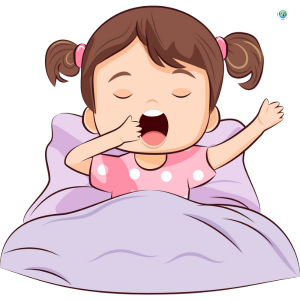
Dr Sathiya Ganesan’s
Restful Nights, Brighter Mornings – Sleep Care for Growing Minds.
Specialised Psychiatric Support for Restoring Healthy Sleep in Young Minds
Sleep plays a vital role in a child’s growth, brain development, emotional regulation, and academic performance. When sleep becomes disrupted, the effects ripple into every area of life — often causing irritability, learning issues, or emotional instability.
Dr. Sathiya Ganesan, Consultant Child and Adolescent Psychiatrist, offers expert, compassionate care for children and teens struggling with Sleep and Wakefulness Disorders, helping them (and their families) rediscover restful nights and brighter days.
Understanding Sleep Disorders in Children
When Rest Becomes a Struggle – Helping Children Sleep Soundly Again

Sleep disorders are not just about “bad habits” — they are often medical or psychological conditions that interfere with the body’s natural sleep-wake cycle. Left untreated, these issues can affect memory, concentration, behaviour, and mood.
Common sleep and wake disorders in children and adolescents include:
- Insomnia Disorder – difficulty falling or staying asleep
- Delayed Sleep-Wake Phase Disorder – falling asleep and waking up much later than desired
- Nightmare Disorder – frequent frightening dreams that disrupt sleep
- Sleep Terror Disorder (Night Terrors) – sudden waking in panic without memory of dreams
- Sleepwalking (Somnambulism)
- Hypersomnia – excessive sleepiness despite adequate rest
- Restless Legs Syndrome (RLS)
- Obstructive Sleep Apnea (requires pediatric and ENT evaluation in conjunction)
In teens, poor sleep is often linked with screen overuse, academic stress, or mental health concerns like anxiety and depression.
Common Signs of Sleep Disorders in Children and Teens
- Trouble falling asleep or resisting bedtime
- Frequent night awakenings or nightmares
- Difficulty waking up in the morning
- Daytime sleepiness or dozing off during class
- Hyperactivity, irritability, or emotional outbursts
- Bedwetting, sleepwalking, or night terrors
- Falling asleep too late and waking too late
- Headaches or mood changes upon waking
If sleep issues last more than a few weeks and disrupt daily functioning, it’s time for a professional evaluation.
Child-Friendly Sleep Assessment and Diagnosis
Dr. Ganesan uses a structured, age-appropriate assessment that includes:
- Detailed sleep history (bedtime, waking patterns, routines)
- Family interviews and sleep diaries
- Screening for anxiety, depression, trauma, or ADHD
- Review of environmental and screen-time factors
- Collaboration with pediatricians for sleep studies if needed
This holistic approach identifies whether the cause is biological, behavioral, psychological, or a combination — guiding an effective treatment plan.
Personalized Sleep Recovery Plans
Sleep disorders need structured solutions. Dr Sathiya Ganesan’s care plans include:
- Behavioral sleep therapy and hygiene techniques
- Gradual sleep schedule shifting
- Relaxation techniques before bedtime
- Cognitive restructuring for sleep anxiety or nighttime fears
- School schedule alignment for teens with circadian rhythm delays
- Parent coaching to manage bedtime battles
The focus is not just on sleep — but on helping the child feel calm, safe, and in control of their rest.
Therapy for Emotional or Behavioral Sleep Disruptions
Dr. Ganesan provides therapy for sleep disturbances caused by:
- Anxiety or fear of the dark
- Stress or trauma
- Screen overuse and overstimulation
- Depression or mood instability
- Attention-deficit/hyperactivity (ADHD)-related hyperarousal
Treatment may involve:
- CBT for insomnia (CBT-I)
- Mindfulness and body scanning for relaxation
- Play therapy for children with nighttime fears
- Parent–child interaction therapy (PCIT) for sleep refusal
Medication (Only When Necessary)
Sleep medications are rarely the first line of treatment. If required, Dr. Ganesan may recommend:
- Short-term melatonin for delayed sleep phase or insomnia
- Mild sedating antidepressants (only in severe or co-occurring psychiatric conditions)
- Iron supplements for restless legs syndrome (if indicated)
All medications are used cautiously and only when behavioral interventions are insufficient.
Parental Guidance and Sleep Hygiene Coaching
Parents are supported with clear, practical advice:
- Creating a consistent bedtime routine
- Limiting screen time before sleep
- Managing anxiety around bedtime
- Reinforcing self-soothing and independent sleeping habits
- Understanding the impact of diet, activity, and stress
Families are empowered to create calm, structured evenings at home.
School and Social Impact Support
Poor sleep affects academic focus, emotional regulation, and peer interactions. Dr. Ganesan helps families:
- Coordinate school adjustments if sleep issues cause tardiness or fatigue
- Educate teachers on sleep-related cognitive and behavior changes
- Plan gradual reintegration for sleep-deprived or socially withdrawn teens
Secure Online Consultations and Follow-Ups
Dr. Sathiya Ganesan offers telepsychiatry for:
- Sleep habit monitoring
- Ongoing therapy or behavior coaching
- Parent consultations
- Coordination with pediatricians or sleep specialists
Virtual care ensures accessible support for long-term improvements.

Why Choose Dr. Sathiya Ganesan for Pediatric Sleep Disorders?
Dr. Sathiya Ganesan combines clinical expertise with empathy to help families uncover and resolve the root causes of sleep disruption. His care is:
- Child-sensitive and developmentally informed
- Holistic and behavior-focused
- Designed to empower parents and restore family sleep routines
- Committed to long-term emotional and cognitive well-being
From toddlers resisting sleep to teens battling insomnia, he helps every child wake up to brighter mornings.
Bring Rest Back to Your Child’s Life
If your child is struggling with falling asleep, staying asleep, or waking up on time, it’s not just a phase.
Contact Dr. Sathiya Ganesan today to begin a personalised treatment plan that restores restful nights and healthier days.
What is gender dysphoria in children and teens?
Gender dysphoria refers to the emotional distress a child feels when their gender identity differs from the sex assigned at birth. It’s a recognized mental health condition that requires sensitivity and support.
Can therapy change a child’s gender identity?
No. Ethical therapy is never about changing identity — it supports understanding, emotional processing, and acceptance, while reducing distress.
What role do parents play in identity support?
Parents play a crucial role. Supportive, open communication and unconditional love reduce the risk of depression, self-harm, and social withdrawal.
Can gender-related concerns affect mental health?
Yes. Unaddressed gender dysphoria or social rejection can lead to anxiety, depression, school refusal, or suicidal ideation. Early, affirming care helps prevent this.
Is medical treatment part of gender dysphoria care for teens?
Medical interventions (like hormone therapy) are not initiated without thorough psychiatric evaluation and parental involvement. Dr. Ganesan focuses on emotional care and readiness assessment in collaboration with pediatric specialists.


